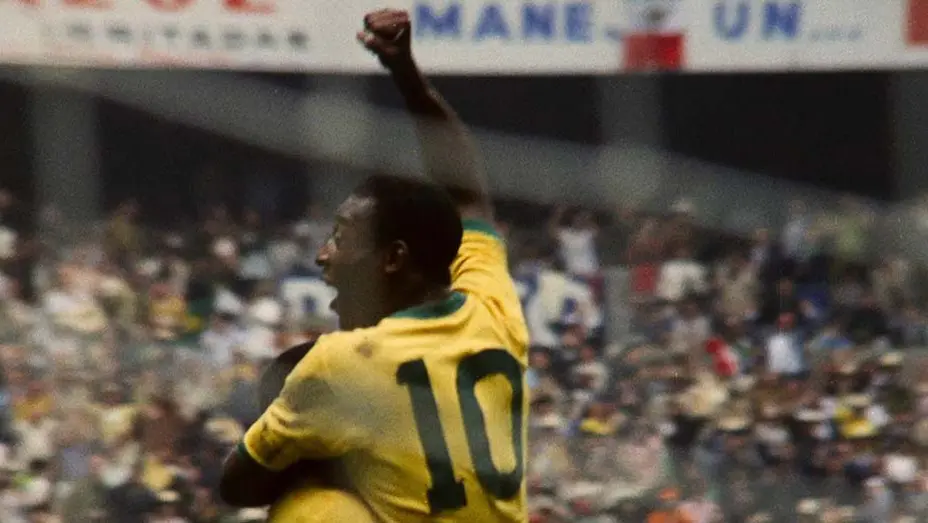Summary
Pelé is frank and open-minded in its approach to the life and career of the legendary footballer, questioning not just his success on the pitch but also his infidelity, his relationship with right-wing authoritarianism, and how he is inextricably tied to Brazil’s national identity.
This review of Pelé on Netflix contains spoilers.
Most of what you hear about Pelé is that he’s the best footballer who ever lived, at least when it comes to clinching the biggest victories on the biggest stages. Obviously, debates about football are as circuitous and ultimately pointless as debates about anything, but there’s another element to consider with someone like Pelé, whose sporting successes, since the most notable were at the international level, are intimately tied to the cultural pride and identity of Brazil. This is something that the new Netflix documentary film, co-directed by David Tryhorn and Ben Nicholas and featuring Pelé himself in extensive interviews, argues should always be part of the discussion around the player, since it’s also an integral part of how he sees himself and his legacy.
On that level, Pelé is a relationship drama, but the torrid affair is between a nation’s star player and the nation itself. Brazil’s World Cup wins in 1958 and 1970 bookend Brazil’s rise from a country with a so-called defeatist mentality to a footballing superpower, and also Pelé’s career – in the first tournament in Sweden he became the youngest ever goalscorer in a final, and in the last one in Mexico, he retired from international football altogether. Pelé emerging from life in São Paulo shining shoes as Edson Arantes do Nascimento to become an icon of national triumph is the kind of underdog story we can all get behind, and thanks to technological good fortune, such as the transition of football from primarily radio to color television, the entire world was able to witness his ascent.
Nobody is better or worse positioned to talk about Pelé’s career than Pelé himself, who was heavily involved in the film and spent hours with Tryhorn and Nicholas, who themselves had to negotiate for months simply to get access to him. He has no sense of objectivity or humility when it comes to his footballing prowess, but as with other global footballing icons such as Diego Maradona, his footballing prowess is the least interesting thing about his life. Of more immediate note is the context it exists within; the frankness about Pelé’s infidelity ruining his first marriage might feel a bit soapy, but the film finds its true power and purpose in exploring Pelé’s relationship with the right-wing authoritarian junta that ruled Brazil under Emílio Garrastazu Médici and used football as a tool of propaganda all throughout Pelé’s success.
Here the documentary is surprisingly frank, juxtaposing footage of Pelé being pally with Médici with footage of riots and talk of state-sanctioned murder and torture. Loaded terms like “Uncle Tom” are thrown around about Pelé, but the film doesn’t outwardly oppose him, in the same way it doesn’t attempt to justify or excuse all his decisions. He was a young, mostly uneducated footballer who risked death in speaking out against the regime that held the country he loved in its sway; through football, he had an avenue to elevate that country without putting himself in the firing line. He never embraced radicalism because, despite playing abroad a lot, he was too intimately associated with Brazil itself to be able to do so.
He remains so even today, though thankfully under better circumstances. Those who’re dismissive of football would do well to consider a documentary like this when bemoaning how much attention the sport gets. Pelé exists as a reminder of the beautiful game at its most pure and poetic, but also at its most tumultuous and dangerous; his sporting career doubles as national history, as a chronicle of burgeoning technology, and a redefining of the idea of global stardom. Whether he’s the best ever is beside the point, though I know exactly what he’d say if you asked him.




